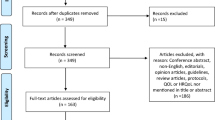Abstract
As a result of the expanded use of health-related quality of life (HRQL) measures in clinical trial research, a variety of legal and ethical issues have surfaced. These issues can be put in the form of the following questlons: (1) Under what circumstances should access to HRQL measures be restricted? (2) Under what circumstances is it appropriate for the developers of HRQL measures to assert their intellectual property rights to the instruments? (3) Under what circumstances is personal profit from the sale and use of HRQL measures legally and socially appropriate? Access to HRQL research is to be encouraged since this is necessary for this field to progress. However, the need for protection against misuse of ongoing work is real and may justify the assertion of intellectual property rights. HRQL measures developed entirely with public monles should remain in the public domain or be managed for the public good. Instruments developed with private funds or with a mix of public and private funds should be treated in a manner that refiects a fair balance between the rights of the private developer and those of the scientific community and the public. HRQL questionnaires are regularly being refined; such work is costly. Investigators continuing research directly related to instrument refinement might reasonably ask for compensation from those who wish to use their work.
Similar content being viewed by others
References
Faden R, Leplege A. Assessing quality of life: moral implications for clinical practice. Med Care 1992; 30: MS166-MS175.
Levine RJ. An ethical perspective. In: Spilker B, ed. Quality of Life Assessments in Clinical Trials New York: Raven Press, 1990: 153–162.
Shapiro MF. Is the spirit of capitalism undermining the ethics of health services research? Health Serv Res 1994; 28: 661–687.
Nimmer RT, Krauthaus PA. Information as property-databases and commercial property. Int J Law Inform Technol 1993; 1: 3–34.
Nimmer RT. The Law of Computer Technology Boston: Warren Gorham Lamont, 1992: 1-18–1-21.
Nimmer MB Nimmer RT. Nimmer on Copyright. New York: Matthew Bender, 1993: 13-65–13-81; 16-2–16-4.
Copyright Act of 1976, Title 17, United States Code, S107.
Samuelson P. Fair use for computer programs and other copyrightable works in digital form. J Intellectual Property Law 1993; 1: 49–118.
Stewart AL, Hays RD, Ware JE Jr. Methods of validating MOS health measures. In: Stewart AL, Ware JE Jr., eds. Measuring Functioning and Well-Being. Durham, NC: Duke University Press, 1992: 309–324.
Guyatt GH, Walter S, Norman G. Measuring change over time: assessing the usefulness of evaluative instruments. J Chronic Dis 1987; 40: 171–178.
Author information
Authors and Affiliations
Rights and permissions
About this article
Cite this article
Berzon, R., Patrick, D., Guyatt, G. et al. Intellectual property considerations in the development and use of HRQL measures for clinical trial research. Qual Life Res 3, 273–277 (1994). https://doi.org/10.1007/BF00434901
Received:
Accepted:
Issue Date:
DOI: https://doi.org/10.1007/BF00434901




